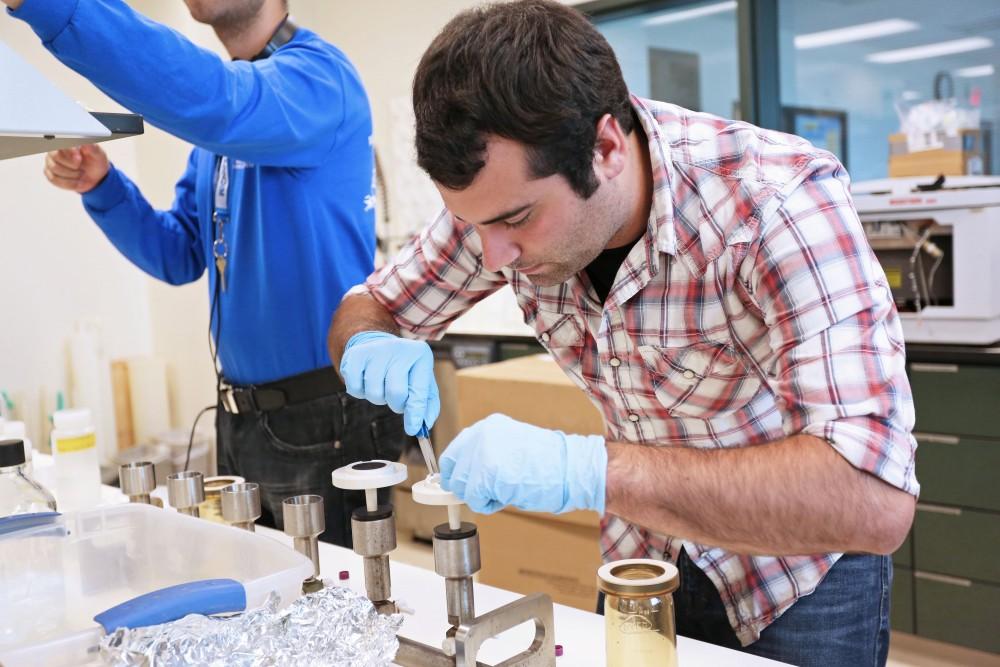GVSU satellite campuses provide services throughout Michigan

GVL/Kevin Sielaff – Drew McWilliams tests water from Lake Michigan for E-Coli inside of the Robert B. Annis Water Resource Institute (AWRI) in Muskegon on Wednesday, July 8, 2015.
Nov 14, 2016
Getting accepted into your dream school is one thing – overcoming the distance and finances is another.
The appearance of satellite campuses or branch campus, which is a separate campus a considerable distance away from the main campus of the university, provides students throughout the world resources to continue their education.
At Grand Valley State University, through the Continuing Education Office, there are several satellite campuses, including the Traverse City Regional Center, the GVSU Muskegon Regional Center and the Meijer Campus in Holland.
Simone Jonaitis, the executive director of the Continuing Education Office, said the primary use of satellite campuses at GVSU is to provide programs and services at regional sites throughout Michigan.
“With some people, coming to the Allendale Campus isn’t a possibility,” she said. “The rationale behind satellite locations or regional centers is to connect with the community in their needs and through education.”
According to Huffington Post, the opportunities offered at satellite campuses provide undergraduate students with experiences beyond college courses for credit. The opportunities offered by these campuses add variety of programs and initiatives only utilized at that branch.
Jonaitis said the Traverse City Regional Center, which is located at the Northwestern Michigan College University Center, also benefits Traverse City’s surrounding community.
In order to provide immediate access to residents in Northern Michigan, GVSU’s health professions program expanded to the Traverse City Regional Center. Providing graduate-level education in the program, the center offers a master’s degree in the public health and a bachelor’s degree of allied health sciences.
“Health care is a national issue and in rural America it is not easy to access care at times,” Jonaitis said. “With the physician assistant program, it primarily serves rural communities and works in the community to provide services. What has emerged in Northern Michigan is based on what all communities needs are.”
With the Muskegon Regional Center, Jonaitis said, the focal point is to offer undergraduate students is specifically designed to meet the needs of nontraditional students returning to higher education.
Partnering with Muskegon Community College, the Muskegon program emphasizes an interdisciplinary liberal education. Staff members at the center also provide academic resources and advise students who are considering transferring to GVSU.
“We emphasize partnering with community colleges to establish pathways to success and education for students,” Jonaitis said.
Partnering with Grand Rapids Community College, the Meijer Campus in Holland offers courses necessary for fulfilling general education requirements.
The satellite campus in Holland gives students a flexible degree completion program and allows students to build on courses they’ve already completed, either at GVSU or at any other accredited university.
In regard to the benefits of the satellite program at GVSU, Jonaitis said students at these campuses are actively involved with student initiatives and are engaged within their respective GVSU communities.
“While there is some geography that is different and a bit of distance, the students at these campuses are so proud to be Lakers,” she said. “The university’s philosophy is always present.”





















